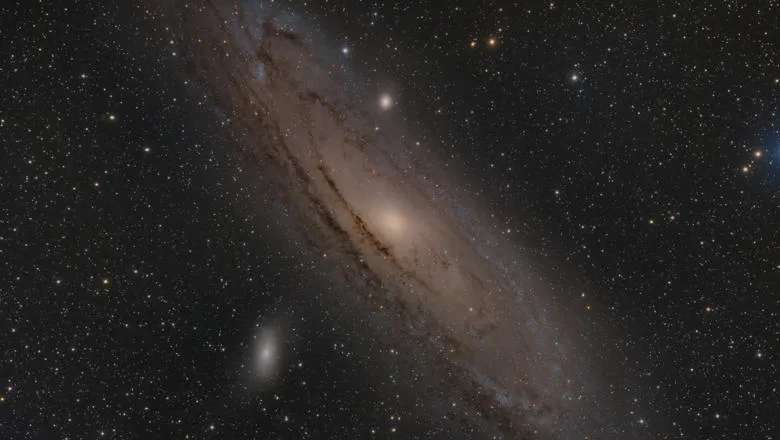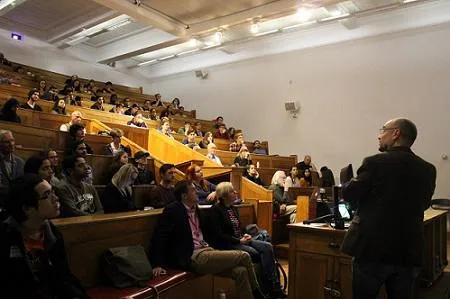01 November 2017
Department of Physics brings Dark Matter Day to King's
The Department of Physics celebrated Halloween this year with King’s College London’s take on Dark Matter Day, an internationally recognised day of scientific inquiry into the true nature of dark matter. The Dark Side of KCL Physics featured a series of short talks in the Anatomy Lecture Theatre from Professor John Ellis FRS, Professor Malcolm Fairbairn and Dr Christopher McCabe on their own active research interests in this area.


Dark matter is thought to make up around 85% of the matter in the Universe yet it is completely invisible. We can tell it is there because of its gravitational effect on stars and other celestial objects, but there is much more still to learn. Physicists have devised many theories and experiments to understand this mysterious substance – searches are currently taking place in deep underground mines, up in space and at the Large Hadron Collider in Switzerland.
Understanding the true nature of dark matter could explain its origins, evolution and overall structure in the universe. Dark Matter Day has been organised to coincide with traditions such as Halloween, Day of the Dead, All Saints’ Day and All Souls’ Day to draw attention to the elusive, mysterious and ethereal nature of dark matter. It is sponsored by the Interactions collaboration, an international community of particle physics communication specialists.

The King’s event was well attended by both staff and students and the general public, and was hosted by award-winning journalist Katia Moskvitch, who is also a part-time postgraduate student in the Theoretical Particle Physics and Cosmology group at King’s. Katia introduced talks by Professor Malcolm Fairbairn on why we need dark matter, Clerk Maxwell Professor John Ellis FRS on what dark matter could be, and Dr Chris McCabe, a recent addition to the Department of Physics, on how we might detect it.
The audience then participated in a lively Q&A session where they were able to ask detailed questions about dark matter to the panel of expert academics. The event gave an exciting insight into the wide variety of research being undertaken in the investigation of dark matter, and engaged staff, students and new audiences in discussions about how we might solve more of its mysteries.
